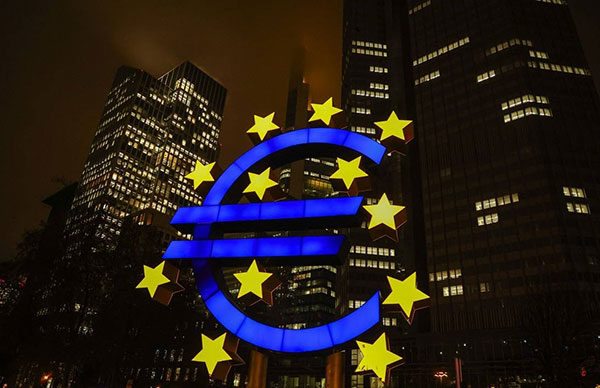Policymakers from the European Central Bank (ECB) gathered on a Portuguese hillside on Monday with the sinking sensation that their hasty response to the inflation shock they failed to predict threatens both a recession and echoes of the eurozone’s sovereign debt crisis.
As President Christine Lagarde and her colleagues gather in Sintra for their version of the Federal Reserve’s Jackson Hole conference, they face competing tasks: slowing the eurozone’s fastest consumer-price growth without triggering an economic downturn or sparking a 2012-style spike in borrowing costs in Italy, the region’s third-largest economy, and other vulnerable states.
Markets have already issued a warning about what is to come. Italian government bond yields surpassed 4% this month for the first time since 2014, as investors feared the ECB’s intention to hike interest rates for the first time in a decade in July.
With that trip arranged, and another in September, officials are rushing to deliver on their promise of a tool to help them.
If yields rise, deploy.”The ECB is in big trouble,” former Bank of England policymaker Charles Goodhart remarked. “They can’t normalize very quickly — putting interest rate rises up front — until they address the fragmentation issue.”
Inflation is now four times the ECB’s objective of 2%, and Lagarde provided a glimpse of the recent soul-searching last week, telling European legislators that authorities “misjudged key elements that had a significant influence on inflation.”
She said that the Fed’s and others’ reticence to raise rates was due to a lack of trust due to previous guidance that has subsequently become obsolete. While the ECB is on the verge of abandoning subzero interest rates, the reversal is being challenged by the largest selloff in eurozone government bonds in years. With the bank’s large-scale asset purchases, policymakers are attempting to provide a backstop to help manage yields as their campaign to normalize monetary policy accelerates.
At 9:27 a.m. in London, Italy’s 10-year yield premium over its German equivalent was hovering below 200 basis points, having soared to a two-year peak over 244 basis points earlier this month.
The Sintra forum has typically been meant as a relaxed occasion for policymakers and scholars to consider the larger picture. However, market instability has frequently lurked close, most recently during the Covid-19 crisis.
This week’s retreat will be Lagarde’s first in person since becoming ECB president in late 2019. It will include discussions on globalization, labor markets, and digital currencies. However, central bankers will confront more serious issues about how they expect to maintain the eurozone’s cohesion while containing inflation.
Data is likely to indicate that consumer prices in the 19-member bloc touched a new all-time high in June on June 24, two days after their conference closes. According to economists, it might reach 8.5 percent.
Lagarde’s first in-person retreat since becoming ECB president in late 2019 will take place this week. It will include topics such as globalization, labor markets, and digital currencies. However, central bankers will face more serious questions about how they want to sustain eurozone solidarity while controlling inflation.
Consumer prices in the 19-member bloc are expected to reach a fresh all-time high in June on June 24, two days after their meeting concludes. Economists predict that it will reach 8.5 percent.
Last week, Fed Chair Jerome Powell, who will also attend the event, made his most explicit acknowledgement yet of the risk of a downturn, saying that result is possible and that attaining a gentle landing is “extremely difficult.”
The eurozone’s immediate economic dangers may be even grAccording to Commerzbank analyst Joerg Kraemer, who predicts a US recession next year and eurozone growth of less than 1% for the time being, the ECB would likely respond “sensitively” if the outlook worsens.
“The danger that Putin would permanently and fully turn off the gas faucet hangs over all our forecasts like a sword of Damocles,” he stated in a client report.eater than those in the United States, because some are outside the scope of monetary policy. The fallout from Russia’s invasion of Ukraine has hit manufacturers hard, and forecasts of a German recession are mounting as the Kremlin tightens energy supplies.

